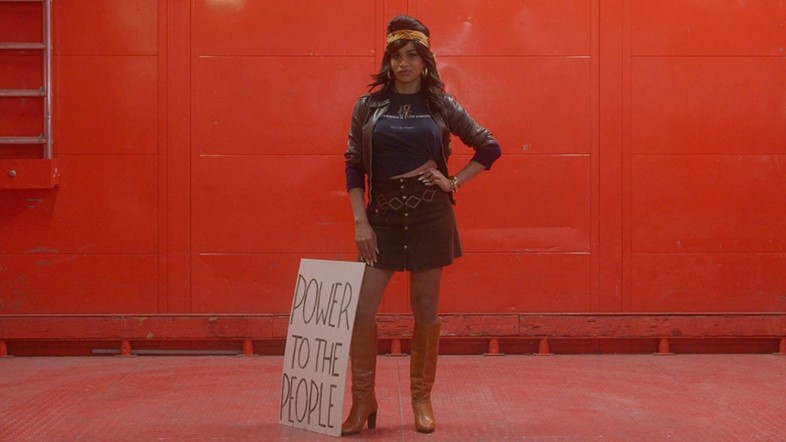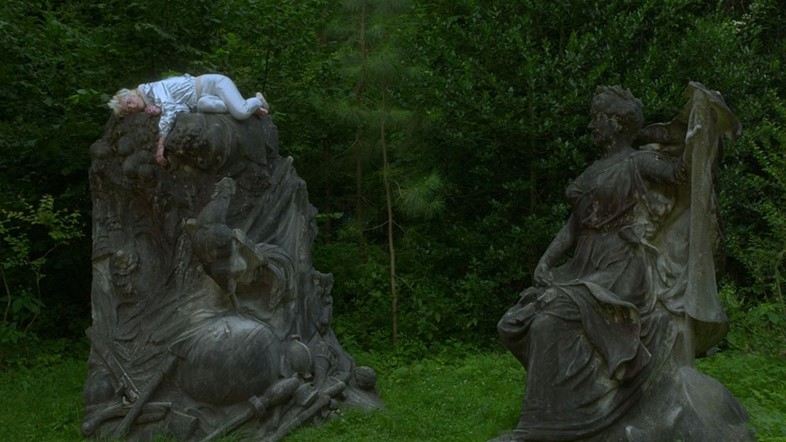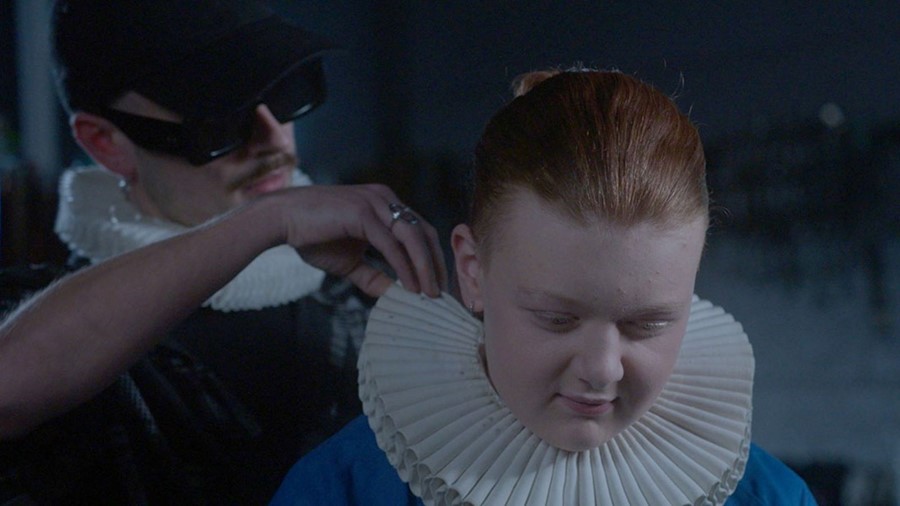As Orlando, My Political Biography opens in American cinemas, philosopher and trans theorist Paul B Precadio talks about adapting Virginia Woolf’s seminal text for the screen
In her novel Orlando (1928), Virginia Woolf’s eponymous protagonist lives many lives, beginning the story as Lord Orlando in the Elizabethan period, and eventually living among the Victorians – some 400 years later – as Lady Orlando. It is appropriate, then, that over a century after it was written, Orlando continues to spawn new adaptations, whether in literature, film, theatre or music.
The latest of these afterlives comes from philosopher and trans theorist Paul B Precadio, who likens Woolf’s groundbreaking book to his own autobiography – but with one quibble: Orlando, as an aristocrat of the British empire, feels too far removed from the lived realities of trans people today. Consequently, Orlando, My Political Biography is a film that straddles fiction and documentary, recutting and stitching the novel to blend authentic passages of Woolf’s prose with reimagined ones, and casting over a dozen trans and nonbinary folks as modern-day Orlandos. “Look, Virginia, look what we’ve become!” the film cries in jubilation, as Orlando dances in a doctor’s office or a courtroom, walks their dog, or wanders through the woods.
Woolf might have referred to Preciado’s cinematic style as “composting”, or what she describes in her diaries as pulling a novel together, “bridging” unalike things, producing “a gigantic conversation.” In one scene, Preciado’s crew of Orlandos perform surgery on a copy of the novel, literally cutting a place in it for themselves, and by implication, also undermining the medical objectification of trans bodies. For Preciado, these swerves of generic play are acts of freedom – he explains over Zoom that “when doing a documentary about transitioning, it is almost like the script is already given. It seems that the far-right or the conservatives ask the questions, and we answer.” His Orlando is a “nonbinary film” because “it’s not a documentary, and it’s not really fiction,” and thus defies the conventions of genre (which is, of course, also French for ‘gender.’)
Since Orlando is his first film, Preciado also chose to embrace the possibilities of experimentation over virtuosity. “I started from the position of not knowing, of surrender, and of saying, ‘I don't know exactly how I am going to make this film.’ And I like that position as a philosophical standpoint – like really, really accepting that you do not know,” wherein ‘not knowing’ is also the most fruitful place from which to learn.

This spirit of working from a place of unknowns mirrors the film’s love of transness as similarly unscripted, experimental, and continuously becoming: recreating Woolf’s famous image of Lord Orlando scribbling poetry under an oak tree, a new Orlando sits in the woods writing a letter to Woolf on a Macbook, describing the film’s plan “to show you all my metamorphoses and crash tests.” Orlando’s joy comes from being open to change and possibility – this is not a portrait of dysphoria, but visionary euphoria. “Most of the time now, when [trans kids] are the object of films, it is basically looking at the process of transition or of refusing binary norms, but from the binary perspective that says ‘all these kids, they suffer from gender dysphoria,’” says Preciado. “I don’t think we suffer from anything. I think that the hyper-normative society in which we live suffers from an inability to deal with the radical multiplicity of the human being.”
One of the film’s main concerns is subverting this dangerous history of pathology. Likening it to Woolf’s own history with mental illness and medicalisation, Preciado insisted that the film be guided by the author’s words and not those of the psychiatric, legal, or political sphere: “it was almost like creating the safest space in terms of making the film with Virginia Woolf and the poetic language that she develops. This was a strategy to say, ‘let’s keep all these other languages outside.’ That was already for me an act of utopia, because it was poetry as a way of not letting the normative languages and the languages of hatred get into the film. Like, if you made a wall of poetry, and you put everything else outside.”
The film’s set also became a zone for the “political ritual of healing,” incarnating a community of trans and queer folks collaborating to recreate and reimagine the images of their lives. This had a ripple effect: Preciado recalls that after the film premiered at Berlinale, audience members held each other, hugged, laughed, and cried, “no matter if they were trans, cis, queer, or not. It’s not like you’re pathological or abnormal, this is happening to all of us.”

With these utopian strivings, the film is something like Woolf’s famous ‘room of one’s own’ – a place of reprieve, peace, and creation – but perhaps one with the door left open, inviting everyone in to enter a different kind of world together. Preciado agrees, and adds that this is where cinema differs from writing, in that film “is a room for everyone – it’s the possibility of opening the room and letting other people into that space.”
This impulse is beautiful and hopeful, yet the film often stumbles where race is concerned; it features an almost exclusively white cast and – though Preciado acknowledges Woolf’s racism in our interview – awkwardly sidesteps the writer’s orientalist leanings during Orlando’s excursions to Turkey. This erring is twinned by the claim, in voiceover, that when Orlando was published in 1928, “there were already trans people in the US and Europe,” positing the imperial West as the origin point of gender liberation, when in reality, it has been one of its chief adversaries.
But as the form of Preciado’s film teaches us, gaps can and will be filled, and room must be made. Orlando did not end with Woolf, nor does it end here – it is perhaps a story with infinite chapters.
Orlando, My Political Biography opens in New York cinemas on November 10 and in Los Angeles on November 17.
